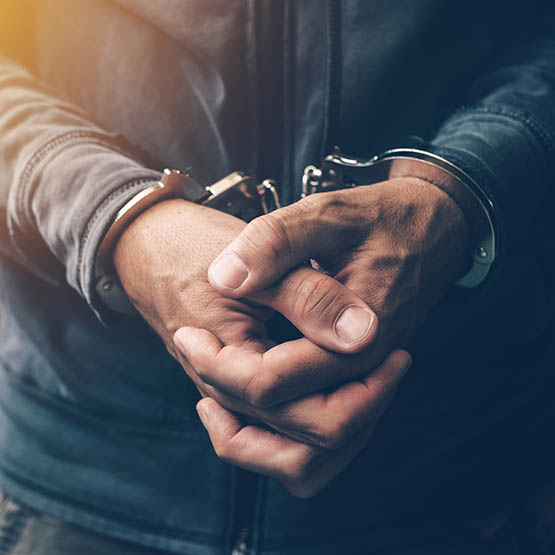To help you understand the arrest process, here are five things that you need to know about arrest.
-
An Arrest Is Not A Request
It’s important that the police make it very clear when someone is under arrest.
Sometimes police officers will ask suspects to attend a police station for a voluntary interview. A suspect does not need to comply with this request. A voluntary request to attend is not an arrest.
Police only have powers to arrest a person if they have obtained a warrant (an order from a Court) to arrest the person. Police can also arrest a person without a warrant if there are reasonable grounds to suspect the person has committed or is committing an offence and arrest is necessary to:
- Stop the person from committing or repeating a crime;
- To stop the person from fleeing;
- To enable the person to be identified;
- To protect the welfare of a person or the public;
- To preserve evidence or to obtain evidence of a crime;
- To ensure a person is brought before a court;
- To obtain property in their possession that is related to a crime;
- To prevent the harassment or interference with witnesses;
Police may also be able to arrest someone if the suspected offence is particularly serious in nature (for example, a murder offence) or the offence involves a breach of bail.
The police may only use as much force as necessary when undertaking an arrest. Unreasonable force used by police during an arrest may constitute an assault.
-
Never Answer Police Questions
A person under arrest has a right to silence and should never respond to police questioning beyond supplying their name and address.
If a person has been arrested, it means that the police have already decided to charge them with a criminal offence. It is illegal for police to arrest a person solely for the purpose of investigation. The only reason police want to ask the arrested person questions is to try to build a stronger case against them. Arrested persons should never feel obligated to respond to police questions.
This because police can use improper and inappropriate questions during police interviews. Police can also pressure people to agree to things that aren’t necessarily true. The time and place for an accused person to give their version of events is inside a court room where the rules of law apply.
There is no “off the record chat” with police, any conversation with an officer can be used against the person under arrest.
A person under arrest should not participate in any interviews, make any statements or sign any documents without first obtaining legal advice.
A suspect should always invoke their right to silence when speaking to police.
Generally, a person’s choice to remain silent cannot be used against them later on.
There is only one circumstance in which a person must answer police questions. That is pursuant to a form of demand regarding the disclosure of the occupants of a vehicle which the police suspect was involved in or was used in connection with an indictable offence. A person who has been served with a form of demand should obtain immediate legal advice.
-
Suspects Have Rights
Whilst under arrest the accused person has a number of rights that they should be aware of.
The arrested person has a right to contact a lawyer or another person. However, there is no right to have a lawyer present during police interview.
Following an arrest, police can only detain someone for a ‘reasonable time’ to attempt an interview and conduct investigations. Normally, this is no more than six hours unless an extension is granted.
If a suspect is under 18 years of age, there must be a responsible adult, such as a parent, guardian, youth worker or solicitor, present when speaking to police.
Moreover, Aboriginal Torres Strait Islander people and people with disabilities may be entitled to a support person during a police interview.
-
Bail
Bail is the conditional release of a person waiting to have their matter heard before a court.
Once charged, the person under arrest is entitled to bail, unless police believe the arrested person poses an ‘unacceptable risk’ of fleeing, endangering others, committing further offences or tampering with evidence.
If police refuse bail, the arrested person must be taken to a court as soon as practicable so that the person can make an application for bail to the court.
It’s crucial that an accused person seeks immediate legal advice before applying for bail.
For more information on bail, see our in-depth explanation of Bail in New South Wales.
-
Get Legal Advice Immediately
Always seek legal advice at the earliest possible opportunity. The sooner the accused person gets legal advice the better. This is to ensure that they are informed of their rights prior to being interviewed by police or being subjected to forensic tests. These tests could be to obtain things such as DNA, fingerprints or photos. Unlike regular civilians, criminal lawyers are able to call the police station and speak to persons under arrest.
Our Sydney Criminal Lawyers are available 24 hours a day, 7 days a week.


